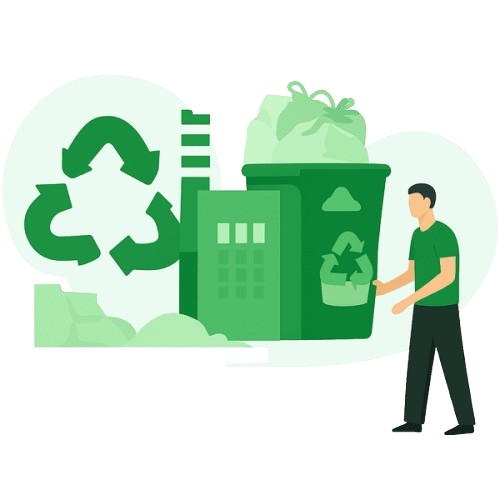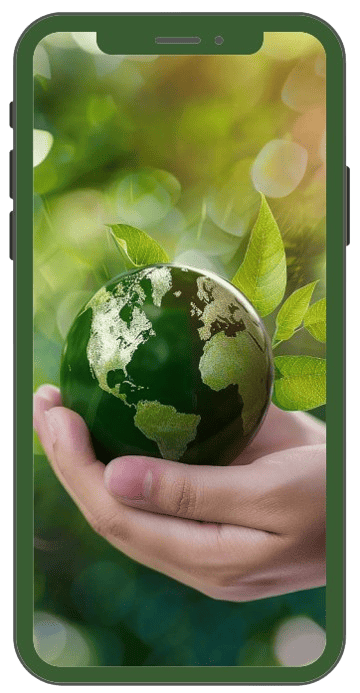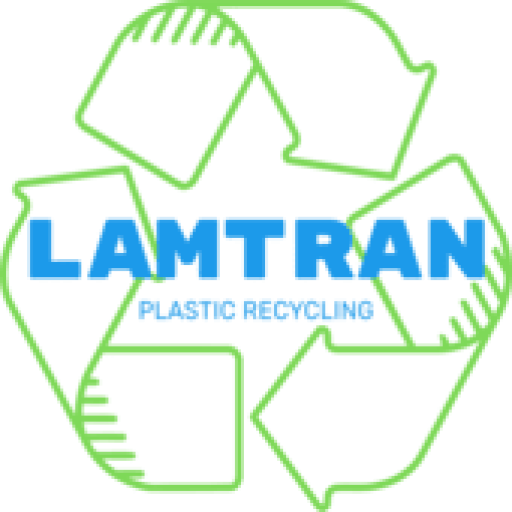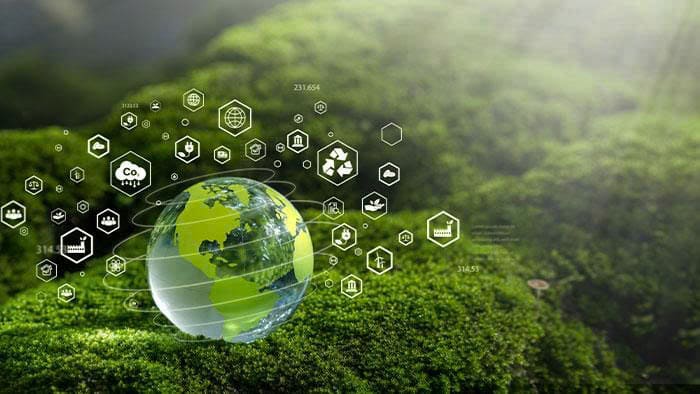EXTENDED PRODUCER RESPONSIBILITY (EPR)
Lam Tran – Pioneer in implementing EPR for soft plastic packaging code A.3.4 in Vietnam

What is EPR?
EPR (Extended Producer Responsibility) is an environmental policy in which the responsibility of the producer or importer for a product is extended to the end of the product’s life cycle. EPR requires the producer or importer to take responsibility for the management of their product when it becomes waste, including responsibility for collection, recycling or final disposal.
Lam Tran accompanies in building a circular production model, towards sustainable development
EPR Consulting & Guidance
Planning, collecting and recycling packaging in accordance with Decree 08/2022/ND-CP, Decree 05/2025/ND-CP
Providing documents for completing EPR obligations, ensuring legality and transparency for businesses


BENEFITS WHEN BUSINESSES COOPERATE EPR WITH LAM TRAN
Comply with legal regulations on EPR.
Get advice on appropriate EPR roadmap according to industry, packaging and production scale.
Accompany businesses to build green brand image, sustainable development.
Optimize costs – transparent documents.


Has/Is cooperating with major manufacturers
FAQs
Which entities are required to fulfill recycling responsibilities?
According to Article 77 and Appendix XXII of Decree No. 08/2022/ND-CP detailing certain provisions of the Law on Environmental Protection (hereinafter referred to as Decree No. 08/2022/ND-CP), the following manufacturers and importers of products and packaging must fulfill recycling responsibilities:
(1) Batteries (including lead-acid and other types) and rechargeable batteries (including batteries for vehicles and for electronic devices).
(2) Engine oils.
(3) Tires of all types.
(4) Electrical and electronic equipment: including refrigerators, freezers, automated frozen product dispensers, vending machines; fixed and portable air conditioners; tablets, laptops (notebooks); TVs and computer monitors, other types of screens; compact lamps; fluorescent lamps; electric stoves, induction stoves, infrared stoves, ovens, microwaves; washing machines, dryers; cameras (including flashlights), camcorders; audio equipment (speakers, amplifiers); desktop computers; printers, photocopiers; mobile phones; solar panels.
(5) Vehicles: including two-wheeled motorcycles, three-wheeled motorcycles; motorbikes including electric bikes, electric bicycles; passenger cars (up to 9 seats); passenger cars (more than 9 seats); cargo cars (all types of trucks); self-propelled construction vehicles.
(6) Commercial packaging (including primary and outer packaging) of products: food as regulated by food safety laws; cosmetics as regulated by laws on cosmetic production conditions; pharmaceuticals as regulated by pharmaceutical laws; fertilizers, animal feed, veterinary drugs as regulated by laws on fertilizers, animal feed, veterinary drugs; cleaning agents and products used in household, agriculture, and healthcare; cement.
How is commercial packaging defined?
According to Article 3 of Government Decree No. 43/2017/ND-CP on product labeling, commercial packaging refers to packaging that contains the goods and circulates together with the goods, consisting of two types: primary packaging and outer packaging:
(1) Primary packaging is packaging that directly contains the goods, in direct contact with the goods, forming the shape or completely enclosing the shape of the goods.
(2) Outer packaging is packaging used to wrap one or several units of goods with primary packaging.
According to Circular No. 05/2019/TT-BKHCN detailing the implementation of certain provisions of Decree No. 43/2017/ND-CP, the following types of packaging are not considered commercial packaging:
(1) Packaging used to store, transport, or preserve goods that already have labeling;
(2) Shopping bags provided when purchasing goods;
(3) Packaging used for loose goods or retail items.
When must manufacturers and importers of products and packaging fulfill recycling responsibilities?
According to Clause 4, Article 77 of Decree No. 08/2022/ND-CP, manufacturers and importers must implement recycling responsibilities for products and packaging according to the following schedule:
(1) Batteries and rechargeable batteries: effective from January 1, 2024.
(2) Engine oils: effective from January 1, 2024.
(3) Tires: effective from January 1, 2024.
(4) Packaging: effective from January 1, 2024.
(5) Electrical and electronic equipment: effective from January 1, 2025.
(6) Vehicles: effective from January 1, 2027.
In which cases is recycling responsibility not required?
According to Clause 3, Article 77 of Decree No. 08/2022/ND-CP, in certain cases, manufacturers and importers of products and packaging are not required to fulfill recycling responsibilities, including:
(1) Manufacturing products and packaging for export;
(2) Temporarily importing and re-exporting products and packaging;
(3) Manufacturing or importing for research, education, or testing purposes (non-commercial);
(4) Packaging manufacturers with total sales or service revenue in the previous year below VND 30 billion;
(5) Packaging importers with total import value (customs value) in the previous year below VND 20 billion.
Our company has two types of packaging: shopping bags provided by supermarkets (produced by other suppliers) and packaging for our own branded products. Does our company have to fulfill recycling responsibilities?
According to Article 3 of Circular No. 05/2019/TT-BKHCN, supermarket shopping bags are not considered commercial packaging; therefore, manufacturers of this type of packaging are not required to fulfill recycling responsibilities.
Based on Article 77 of Decree No. 08/2022/ND-CP, commercial packaging (primary and outer packaging) of the following products requires companies to fulfill recycling responsibilities: food (as regulated by food safety laws); cosmetics (as regulated by laws on cosmetic production conditions); pharmaceuticals (as regulated by pharmaceutical laws); fertilizers, animal feed, veterinary drugs (as regulated by laws on fertilizers, animal feed, veterinary drugs); cleaning agents and products used in household, agriculture, and healthcare; and cement.


